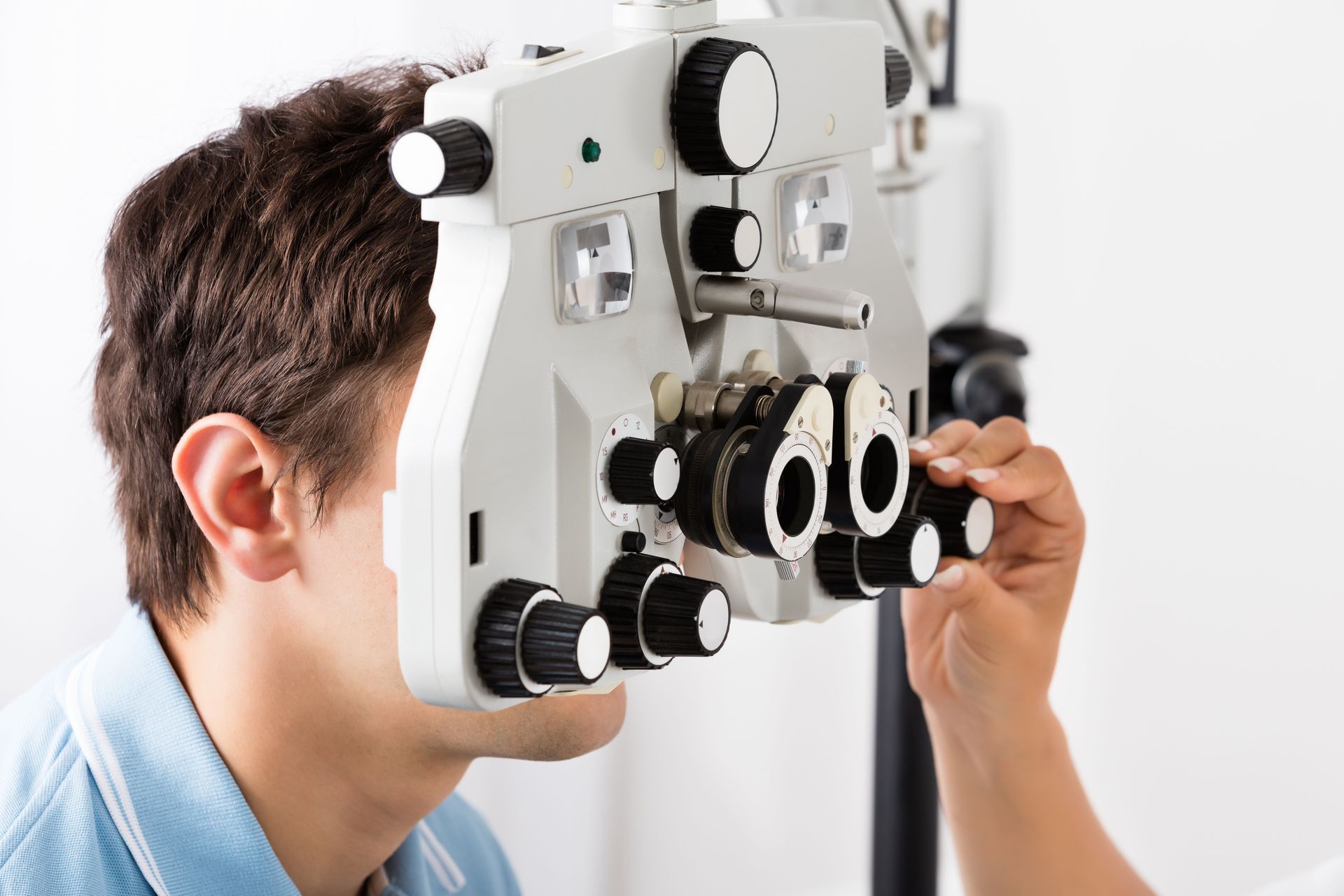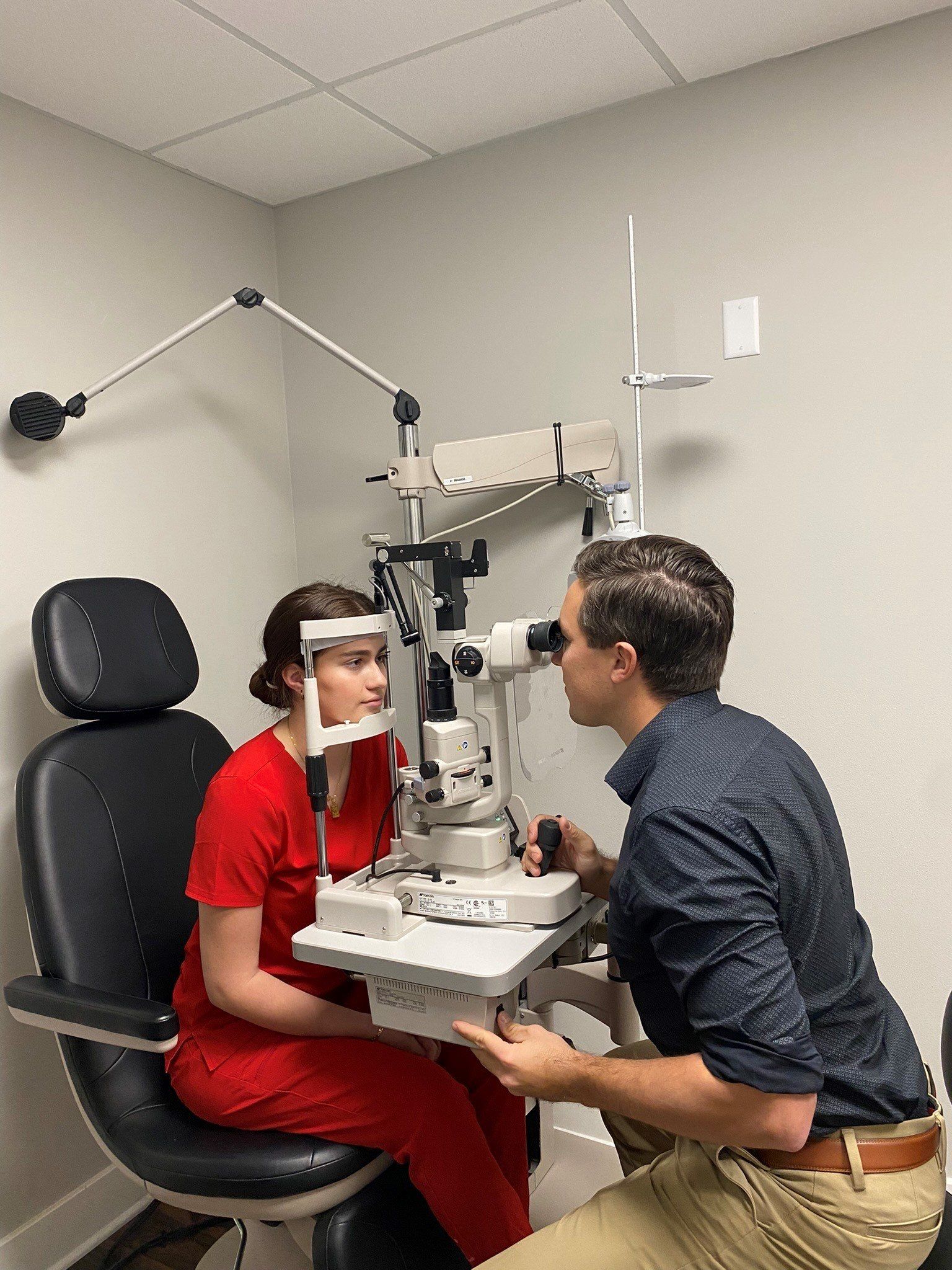Explore the crucial role local optometrists play in maintaining eye health and contributing to the well-being of the community. Discover why choosing a local expert can be beneficial for long-term eye care management. Eye health is a crucial aspect of our overall wellness, affecting everything from daily activities to long-term quality of life. By choosing a local optometrist, patients gain access to convenient, personalized eye care and community-focused services. This article will delve into the various aspects and advantages of seeking eye care services from a local optometrist.
Maintaining Regular Eye Exams
Regular eye exams are vital for maintaining optimal eye health and vision clarity. They help in the early detection of vision problems, which can range from simple refractive errors to more complex eye conditions. When vision problems are caught early, it allows for timely intervention and management, preventing further deterioration. This proactive approach ensures that individuals lead an improved quality of life with precise vision. Moreover, regular eye exams can reveal the progression of vision, allowing for necessary adjustments to prescriptions.
Monitoring eye health over time is another significant benefit of regular eye exams. An established relationship with a local optometrist provides a continuous record of your eye health, helping in detecting changes. These changes can indicate the onset of eye diseases such as glaucoma or macular degeneration. With ongoing monitoring, patients receive advice on preventive measures to protect their sight in the long run. A local optometrist can, therefore, provide tailored advice based on an individual’s unique eye health history.
Updating prescriptions for glasses and contact lenses is a key aspect of eye exams. According to the Cleveland Clinic, over 1 billion people around the world wear eyeglasses. Maintaining up-to-date prescriptions is crucial. Vision can change frequently, and slight inaccuracies in prescriptions can lead to headaches, eye strain, and reduced concentration. An optometrist near you can re-evaluate and correct these prescriptions swiftly. Furthermore, they can offer the latest in optical technology for enhanced vision correction.
Detecting Systemic Health Issues
The eyes are often referred to as the windows to one’s health, reflecting broader systemic issues beyond vision. During routine eye exams, optometrists can spot symptoms that indicate conditions like hypertension. High blood pressure can cause changes in the blood vessels of the eye, which can be detected during an examination. Thus, optometrists can provide an early warning system for hypertension before other symptoms arise. This capability highlights the integral role of eye care in larger health management strategies.
Besides hypertension, optometrists can recognize signs of diabetes, which often manifest early in the eyes. Diabetes may lead to diabetic retinopathy, a potentially sight-threatening condition. Early detection and referral by an optometrist can result in better management of diabetes and prevention of visual impairment. Optometrists can play a crucial preventive role, helping patients manage and control diabetes effectively. Building a rapport with a local optometrist ensures continued vigilance in detecting and managing such systemic health issues.
High cholesterol is another systemic health concern that optometrists can detect through eye exams. Cholesterol deposits can appear on the retina and corneas, providing clues about a patient’s broader health. Identifying these signs early can lead to referrals for further medical evaluation and intervention. Additionally, optometrists may spot signs of autoimmune disorders and neurological conditions, offering another layer of health support. This critical monitoring positions local optometrists as pivotal partners in holistic health care.
Accessing Specialized Eye Care Services
The breadth of services offered by local optometrists goes beyond ordinary eye exams. Comprehensive eye exams provide in-depth insights into an individual's eye health. These are designed not only to evaluate vision but also to check for eye diseases, the functioning of different eye parts, and overall eye health. Through these exams, optometrists can formulate preventive health strategies aimed at preserving vision for life. Their expertise allows for targeted care that addresses various eye health needs.
Management of eye diseases and emergency eye care form part of the specialized services available locally. Whether facing chronic eye conditions like glaucoma or acute incidents such as retinal detachment, local optometrists provide rapid, expert care. Access to emergency eye care ensures that patients receive immediate attention, preventing further complications. For many communities, local optometrists provide an essential service, offering invaluable accessibility and expertise. Their support affirms the importance of having a trusted eye care provider within reach.
Building Long-term Patient-Practitioner Relationships
Establishing long-term relationships with an optometrist fosters trust and familiarity. Patients are more comfortable discussing health issues and symptoms, improving accuracy in diagnosis and treatment. An optometrist who knows your personal and family eye health history can provide more effective, targeted care. The continuity of care offered by a familiar practitioner results in better health outcomes. Through regular interactions, optometrists become trusted advisors in managing eye health.
Consistent care and follow-ups form the backbone of effective eye health management. The familiarity with patient history allows optometrists to offer customized treatment plans that cater specifically to individuals' needs. These personalized approaches improve the efficacy of treatments and management of chronic eye diseases. Furthermore, continuous care helps to spot any changes in health earlier, providing a proactive means of addressing eye health. Patients benefit from robust, long-term health strategies developed by their local optometrist partners.
Optometrists’ ability to respond to patient needs is further enhanced by their knowledge of individual patient histories. Customized treatment plans can take into account lifestyle, work, and leisure activities. This comprehensive understanding supports the formulation of lifestyle tips to protect and maintain eye health. Such personalized attention can only be achieved through long-term, continuous relationships with local practitioners. As a result, patients receive care that fully aligns with their unique circumstances.
Impacting and Supporting Communities
Beyond individual patient care, local optometrists play a significant role within the community. They contribute economically by running successful practices that provide employment opportunities. By choosing local services, patients indirectly support their community's economic landscape. Furthermore, local optometrists often collaborate with other healthcare providers, promoting a network of integrated health services. This cooperation leads to a more cohesive approach to community health and well-being.
Local optometrists also play a vital role in health education and awareness initiatives. Many participate in health awareness programs and contribute to the understanding of eye health risks and preventive strategies. Optometrists frequently lead educational workshops, seminars, and vision screenings in schools and community centers. Such activities highlight the importance of eye health across all demographics, promoting better overall health outcomes. The active involvement of local practitioners underlines their commitment to public health.
Ensuring Convenience and Accessibility
Accessibility to care significantly influences one's health decisions and outcomes. Choosing a local optometrist ensures proximity to services, whether work or home, minimizing travel and effort. This convenience accommodates regular visits and timely scheduling, encouraging more consistent engagement with eye care. Having a nearby optometrist who offers flexible appointment scheduling is crucial for managing busy schedules. Thus, patients are more likely to prioritize regular eye check-ups, maintaining their overall health.
Summarize the multifaceted benefits of having a local optometrist, emphasizing the personal, health, and community advantages. Encourage readers to prioritize their eye health by engaging with their neighborhood eye care professionals. From routine check-ups to specialized services, local optometrists offer valuable support centered around convenience and accessibility. Across personal and community contexts, their contribution extends beyond mere health service delivery to fostering holistic community wellbeing.
Engaging with a local optometrist strengthens the foundation for lifelong eye health and holistic community development. Take the first step toward clearer vision and healthier eyes—schedule your appointment with Bright Side Eye Care today and experience care that’s truly local.







Share On: